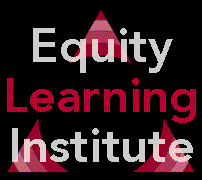
|
|
|
|
an EdChange project by Paul C. Gorski
|




|
by Paul C. Gorski edited and updated on April 14, 2010
Since its earliest conceptualizations in the 1960s, multicultural education has evolved both in theory and in practice. It is rare that any two classroom teachers or education scholars will share the same definition for multicultural education. As with any dialogue on education, individuals tend to mold concepts to fit their particular contexts and disciplines. Some discuss multicultural education as a shift in curriculum, perhaps as simple as adding new and diverse materials and perspectives to be more inclusive of traditionally underrepresented groups. Others talk about classroom climate issues or teaching styles. Still others focus on institutional and systemic issues such as tracking, standardized testing, or funding discrepancies. Some go farther still, insisting on education change as part of a larger societal transformation in which we more closely explore and criticize the oppressive foundations of the world around us and how education serves to maintain the status quo -- foundations such as white supremacy, global socioeconomic conditions, and exploitation. Despite differing conceptualizations of multicultural education (some of which will be laid out more fully below), several shared ideals provide a basis for its understanding. While some focus on individual students or teachers, and others are much more "macro" in scope, these ideals are all, at their roots, about transformation:
While it is important to develop a deeper understanding of the various models of multicultural education and where these points fit into them, I feel it is equally important that I, as the site author, equip the user with my own working definition.
Multicultural education is a progressive approach for transforming education that holistically critiques and responds to discriminatory policies and practices in education. It is grounded in ideals of social justice, education equity, critical pedagogy, and a dedication to providing educational experiences in which all students reach their full potentials as learners and as socially aware and active beings, locally, nationally, and globally. Multicultural education acknowledges that schools are essential to laying the foundation for the transformation of society and the elimination of injustice. The underlying goal of multicultural education is to affect social change. The pathway toward this goal incorporates three strands of transformation:
1. The Transformation of Self As an educator, I have a dual responsibility to engage in a critical and continual process to examine how my socializations and biases inform my teaching and thus affect the educational experiences of my students. I have a responsibility to myself to examine the lenses through which I understand the people and happenings around me. Only when I have a sense for how my own perceptions are developed in relation to my life experiences will I begin to understand the world and effectively navigate my relationships with the people around me. I also have a responsibility to my students to work toward eliminating my prejudices, examining who is (and is not) being reached by my teaching, and relearning how my identity affects their learning experiences. To be an effective multicultural educator I must be in a constant process of self-examination and transformation. 2. The Transformation of Schools and Schooling Multicultural education calls for a critical examination of all aspects of schooling. Aspects of multicultural school transformation include the following:
3. The Transformation of Society Ultimately, the goal of multicultural education is to contribute to the transformation of society and to the application and maintenance of social justice and equity. This stands to reason, as the transformation of schools necessarily transforms a society that puts so much stock in educational attainment, degrees, and test scores. In fact, it is particularly this competitive, market-centric hegemony underlying the dominant mentality of the United States (and increasingly, with the "help" of the United States, the world) that multicultural education aims to challenge, shake, expose, and critique. This is precisely the reason that it is not enough to continue working within an ailing, oppressive, and outdated system to make changes, when the problems in education are themselves symptoms of a system that continues to be controlled by the economic elite. One does not need to study education too closely to recognize that schools consistently provide continuing privilege to the privileged and continuing struggle for the struggling with very little hope of upward mobility. "Informal" tracking, standardized testing, discrepancies in the quality of schools within and across regions, and other practices remain from the industrial-age model of schools. Only the terminology has changed -- and the practices are not quite as overt. Educators, educational theorists, researchers, activists, and everyone else must continue to practice and apply multicultural teaching and learning principles both inside and out of the classroom. We must not allow the knowledge that the vast majority of schools are well-intentioned lead us to assume that our schools are immune to the oppression and inequity of society. We must ask the unaskable questions. We must explore and deconstruct structures of power and privilege that maintain the status quo. In a sense, multicultural education uses the transformation of self and school as a metaphor and point of departure for the transformation of society. Ultimately, social justice and equity in schools can, and should, mean social justice and equity in society. Only then will the purpose of multicultural education be fully achieved.
|